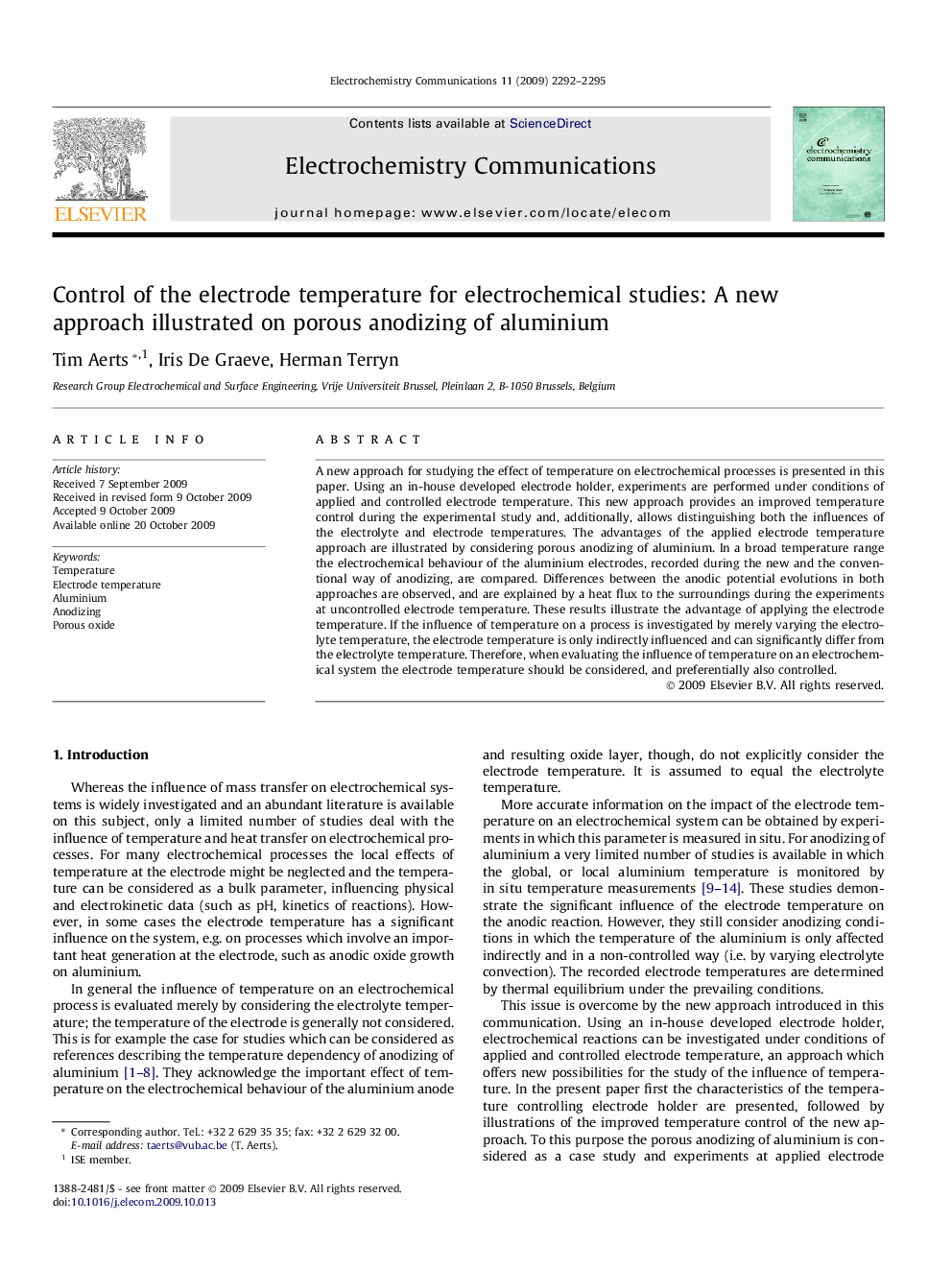| Article ID | Journal | Published Year | Pages | File Type |
|---|---|---|---|---|
| 181274 | Electrochemistry Communications | 2009 | 4 Pages |
A new approach for studying the effect of temperature on electrochemical processes is presented in this paper. Using an in-house developed electrode holder, experiments are performed under conditions of applied and controlled electrode temperature. This new approach provides an improved temperature control during the experimental study and, additionally, allows distinguishing both the influences of the electrolyte and electrode temperatures. The advantages of the applied electrode temperature approach are illustrated by considering porous anodizing of aluminium. In a broad temperature range the electrochemical behaviour of the aluminium electrodes, recorded during the new and the conventional way of anodizing, are compared. Differences between the anodic potential evolutions in both approaches are observed, and are explained by a heat flux to the surroundings during the experiments at uncontrolled electrode temperature. These results illustrate the advantage of applying the electrode temperature. If the influence of temperature on a process is investigated by merely varying the electrolyte temperature, the electrode temperature is only indirectly influenced and can significantly differ from the electrolyte temperature. Therefore, when evaluating the influence of temperature on an electrochemical system the electrode temperature should be considered, and preferentially also controlled.
